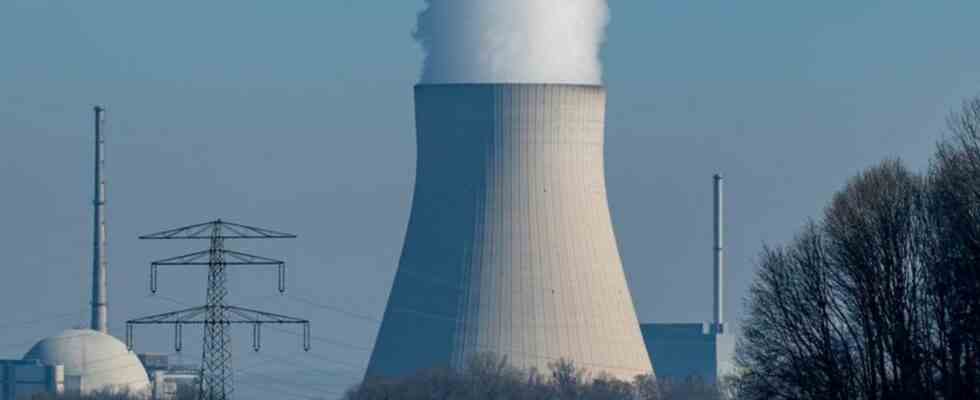power supply
Bavaria is pushing for longer terms for nuclear and coal
Steam rises from the cooling tower of the Isar 2 nuclear power plant. The nuclear power plant in the district of Landshut is the last one in Bavaria that has not yet gone off the grid for good. Photo: Armin Weigel/dpa
© dpa-infocom GmbH
Russia’s war against Ukraine fuels the debate about energy supply in Germany. Economics Minister Habeck doesn’t think much of longer operating times for nuclear power plants. Bayern has a different position.
As a consequence of Russia’s war against Ukraine and to secure the energy supply, Bavaria is pushing for nuclear and coal-fired power plants to run longer.
The Free State underpinned this demand on Thursday in a protocol declaration in the federal-state decision after consultations on the Ukraine crisis.
“In terms of energy policy, the Ukraine war clearly shows how important it is for Germany to strengthen energy security,” the note said. Several measures are urgently required for this: In order to diversify the transport routes and the sources of supply of liquid gas and hydrogen, it is necessary “that southern Germany also has direct access to LNG terminals, for example in Italy and Croatia”. In ports with an LNG terminal, liquid gas can be landed with tankers.
“Critical review of decommissioning”
“In order to maintain the security of supply, especially for gas and electricity, the existing and planned shutdowns of coal-fired power plants must also be critically reviewed,” the protocol statement continues. “From Bavaria’s point of view, however, this is not sufficient due to network bottlenecks on high load days and the high CO2 emissions of coal-fired power.” It is therefore also necessary to extend the operating times of the current nuclear power plants or to restart the nuclear power plants that were decommissioned on December 31, 2021 “for at least three years”. In addition, the federal government must initiate further improvements in the expansion of renewable energies, the Free State demands.
Economics Minister Robert Habeck and Environment Minister Steffi Lemke (both Green) had advised against longer running times for the three remaining nuclear power plants in Germany. They are still scheduled to go offline by the end of the year. In an audit report from the ministries it said: “A small contribution to the energy supply would stand in the way of major economic, legal and safety risks.”
The federal states largely support the course of the federal government
Apart from the Bavarian protocol declaration, the federal states in their joint declaration with the federal government largely supported its economic and energy policy course. The chairman of the conference of prime ministers, North Rhine-Westphalian head of government Hendrik Wüst (CDU), underlined the need for support for citizens and companies: “Sanctions should work on Mr. Putin and not on the people here in Germany.”
In their final paper, the federal and state governments refer to “Germany’s outstanding security policy interest in greater independence from energy imports”. The countries support plans for a rapid expansion of renewable energies. “In this way, Germany is reducing its dependence on other countries, is taking an active stand against Russia’s aggression, which is contrary to international law, and is strengthening its own security of energy supply.” However, the prerequisites are security of supply and sustainable energy prices.

